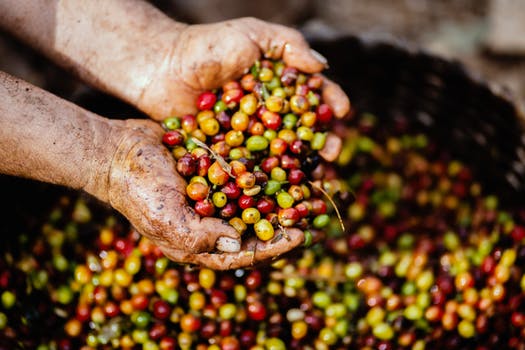Posted: Nov 19, 2018

CNN We pour about 1.4 billion cups of coffee a day globally, according to the International Coffee Organization, and the Ivory Coast has been one of the world's largest coffee producers for over half a century.
But locals don't seem to share the world's enthusiasm for the country's coffee beans.
While traditionally there has not been a strong coffee culture in the Ivory Coast, new coffee shops are opening around Abidjan, hoping to capture the untapped market.
And it is thanks to a group of coffee connoisseurs in Ivory Coast's economic capital, Abidjan using a rare bean called Arabusta.
A recent approval poll of House of Cards president Claire Underwood reveals viewers' feelings about iron-fisted leaders. We also explore the lay of the land for women in politics.
"It's like something secret that people don't actually know when they come to Abidjan but they can discover," said one enthusiast staying at the Bushman Hotel.
A profitable bean
Ivory Coast's flat terrain makes it an ideal place to grow Robusta coffee beans, which it exports in high quantities. Robusta's high caffeine content makes it well suited for instant coffee, but also gives it a bitter taste locals complain about.
In contrast, the Arabusta bean is grown in the mountainous region of Man, combining the strength of Robusta with floral flavors.
Arabusta was first grown in the 1960s at the request of Ivory Coast's first President, Felix Houphouet-Boigny, who wanted something sweeter and milder than Robusta, earning it the nickname 'The Presidential Coffee'.
However, there are reasons why, decades later, only a few farmers are growing the regal bean.
Firstly, the plant grows slowly -- a newly planted tree will not produce beans for up to two years.
Arabusta farmers argue that long lifespan of the plant makes up for this, providing a source of income that spans generations.
"This farm run by my grandfather and father helped put me through school and it's transformed our daily lives," said local farmer Aime Tia Sadie.
He notes that Arabusta coffee sells in supermarkets for three or four times the price of Robusta coffee. But this is due to the time-consuming nature of processing the beans, which are crushed and dried by hand with old-fashioned methods.
That's where agricultural entrepreneurs like Andre Braud-Mensah come in. He is working to mechanize the process of growing Arabusta in the Ivory Coast.
Braud-Mensah has built a high tech roasting plant in his backyard, 50 kilometers from the country's economic capital, Abidjan.
"Everything is digital and computerized, it's the highest technology. Its Japanese technology," he explains.
At the plant, Braud-Mensah focuses on roasting the Arabusta beans in very small quantities and in a highly controlled environment. He has also been experimenting with different recipes -- ones that include notes of pepper and ginger.
"People say 'I don't like coffee' but in fact they do like it. You just have to roast it in the right way," said Braud-Mensah.
One of the final challenges for both Robusta and Arabusta producers is broadening the market for Ivorian coffee at home.
"We're here to promote Ivorian coffee and make the Ivorian people understand the quality of their coffee," said Mohammad Fraoua, the manager of one of the newest arrivals to the Abidjan coffee scene, Cafés Bondin,
With the motto "an African coffee roasted by Africans and for Africans," Cafés Bondin sources beans from across the African continent to serve its customers.
"Africa is the birthplace of coffee," Fraoua explained. "Unfortunately, all the African countries export their 'green' coffee beans, which are roasted in other countries and mixed in with other coffees from other countries. In Africa we really don't know the value of our coffee."
Creating a taste for Ivorian coffee isn't an easy task. For Ivory Coast's burgeoning community of coffee aficionados - 'the presidential bean' is just the way to do it.
"It's like keeping some gold in your backyard and nobody knows you have something exceptional," says Andre Braud-Mensah.
By Rachel Wood, CNN, and Sarah Masiyiwa
November 19, 2018
Source: Cnn.com
Go-Wine's mission is to organize food and beverage information and make it universally accessible and beneficial. These are the benefits of sharing your article in Go-Wine.com